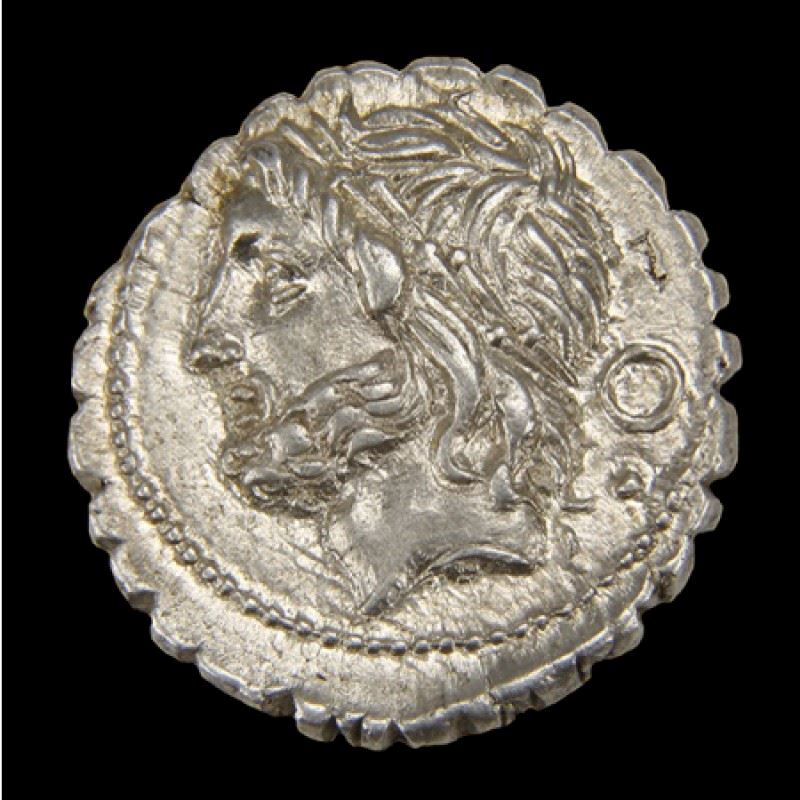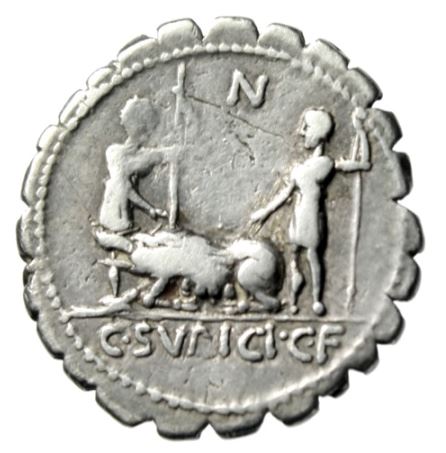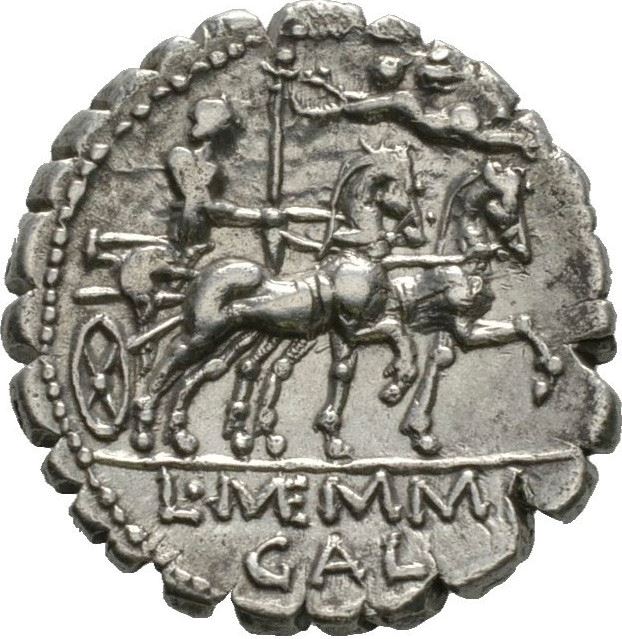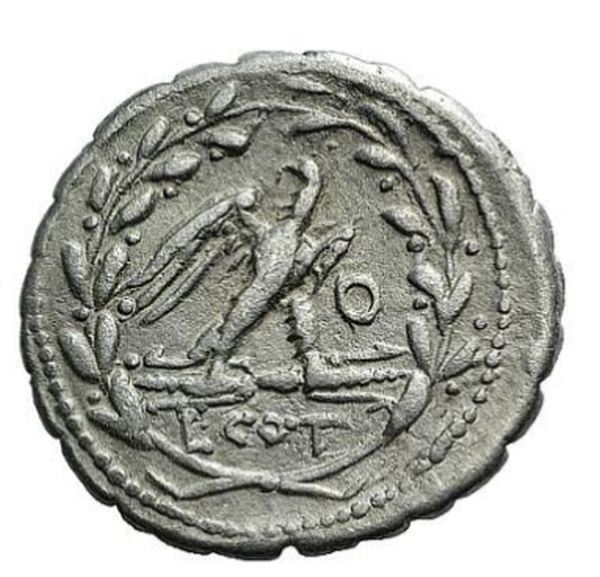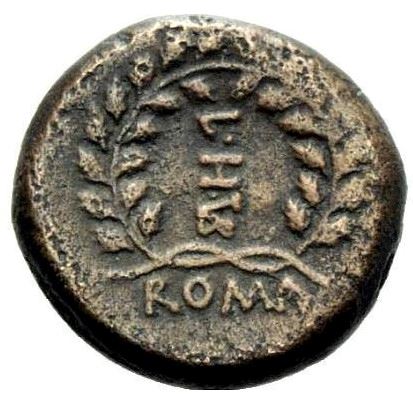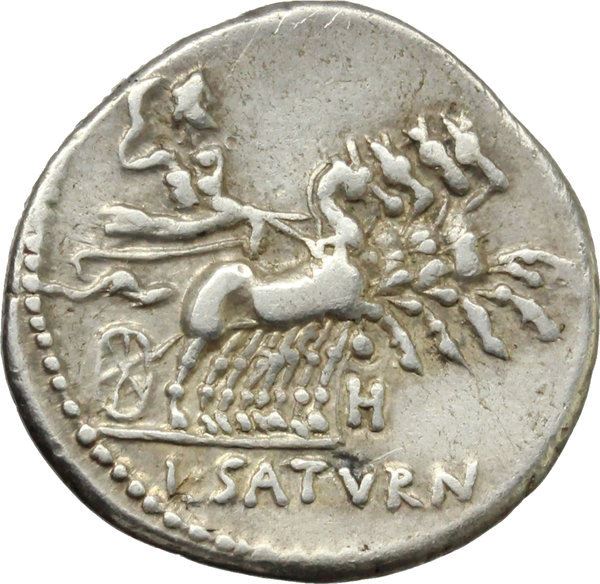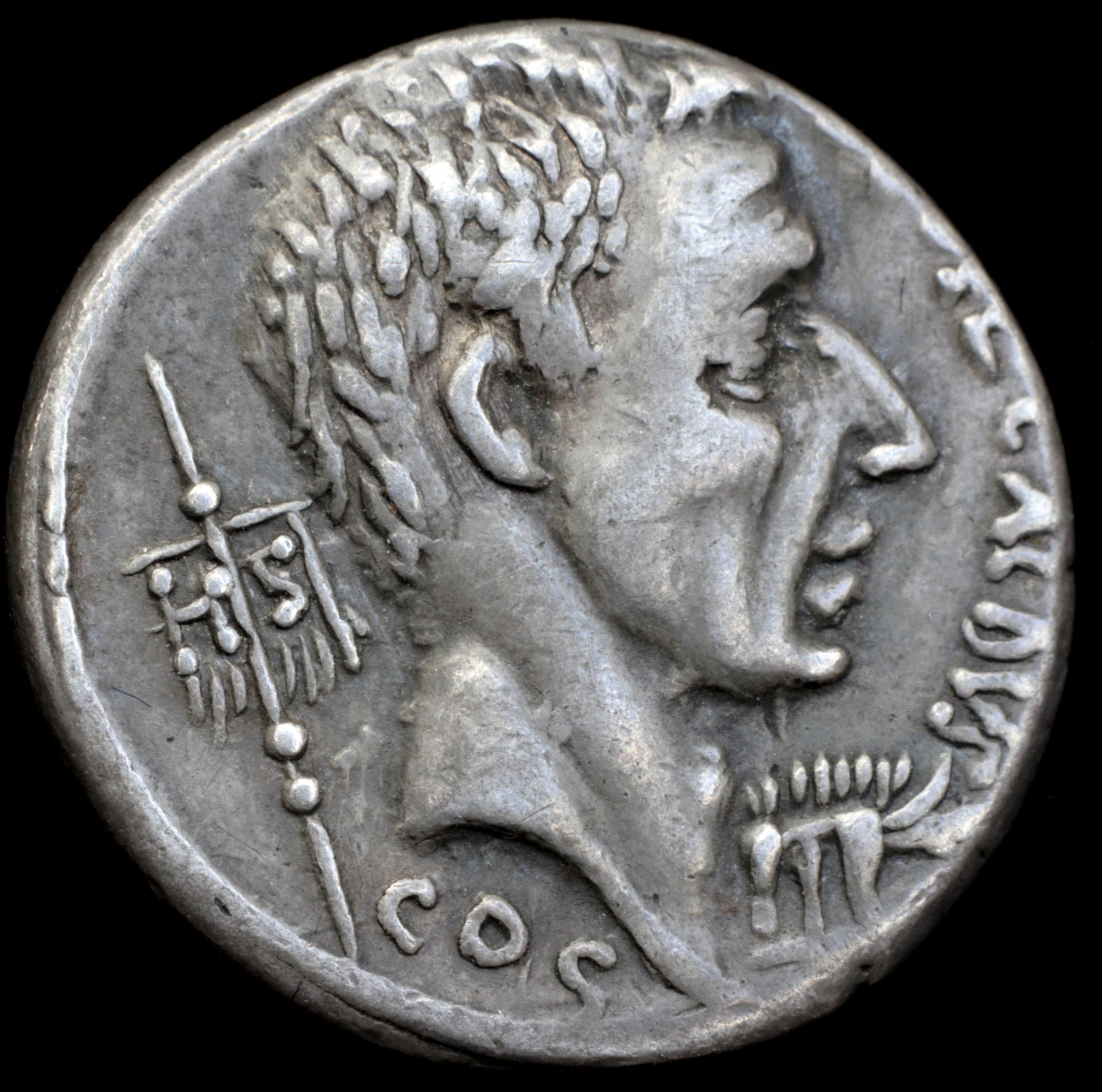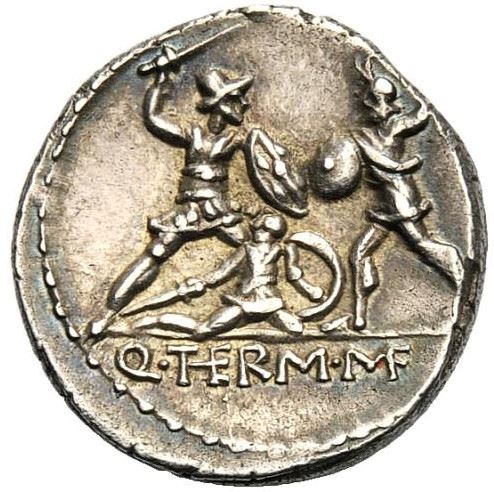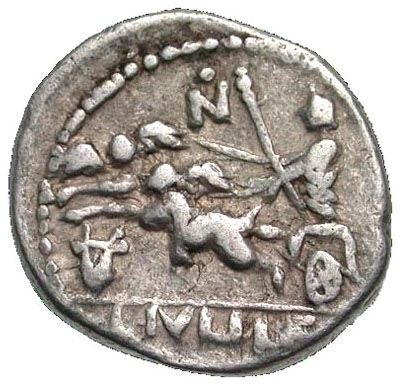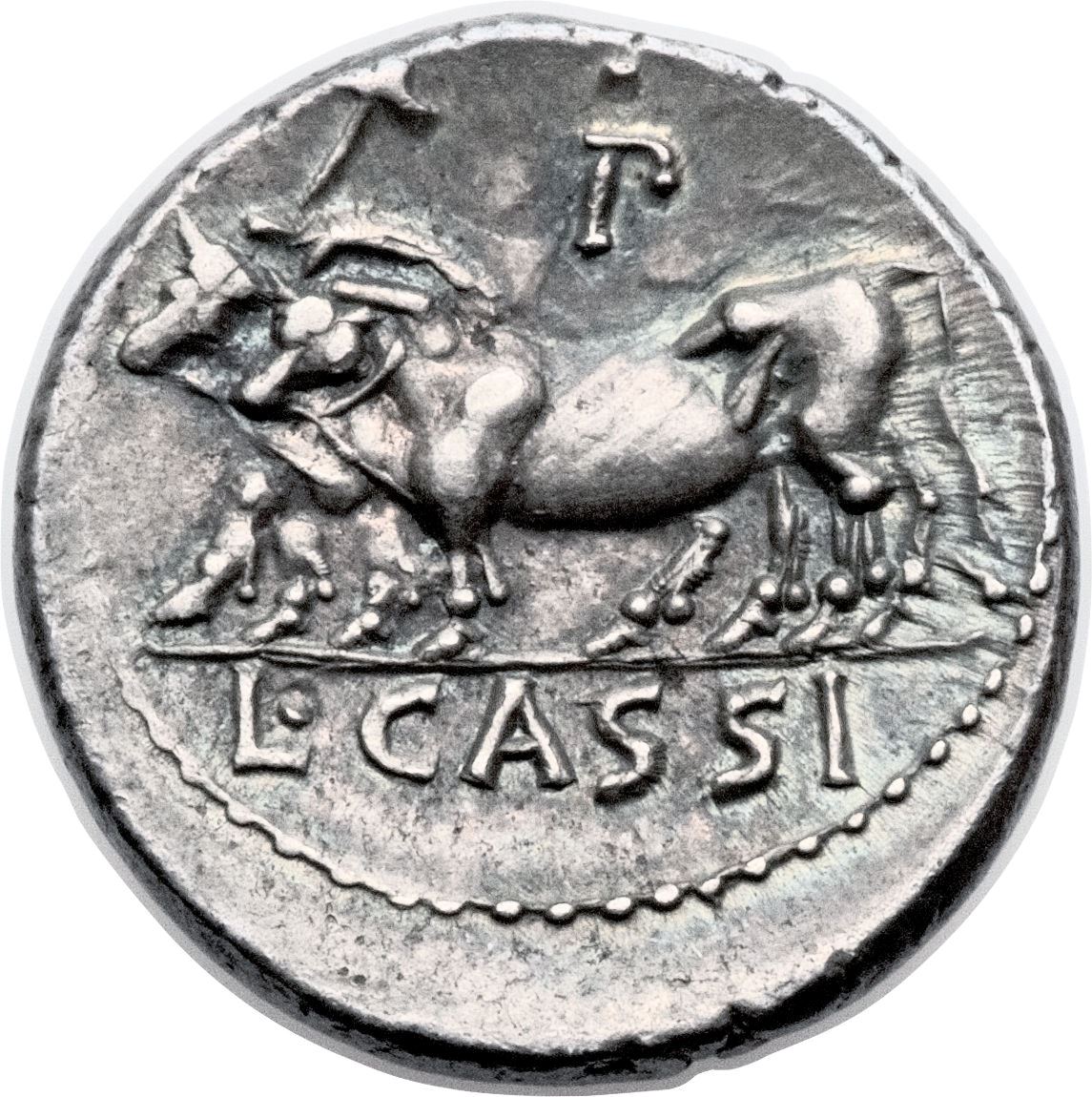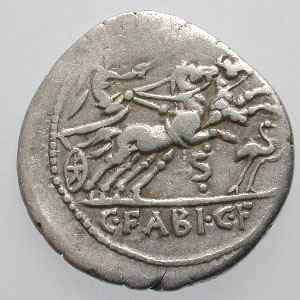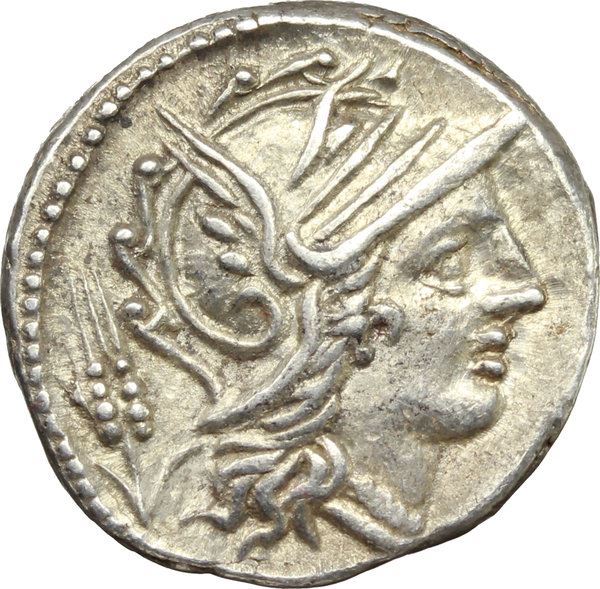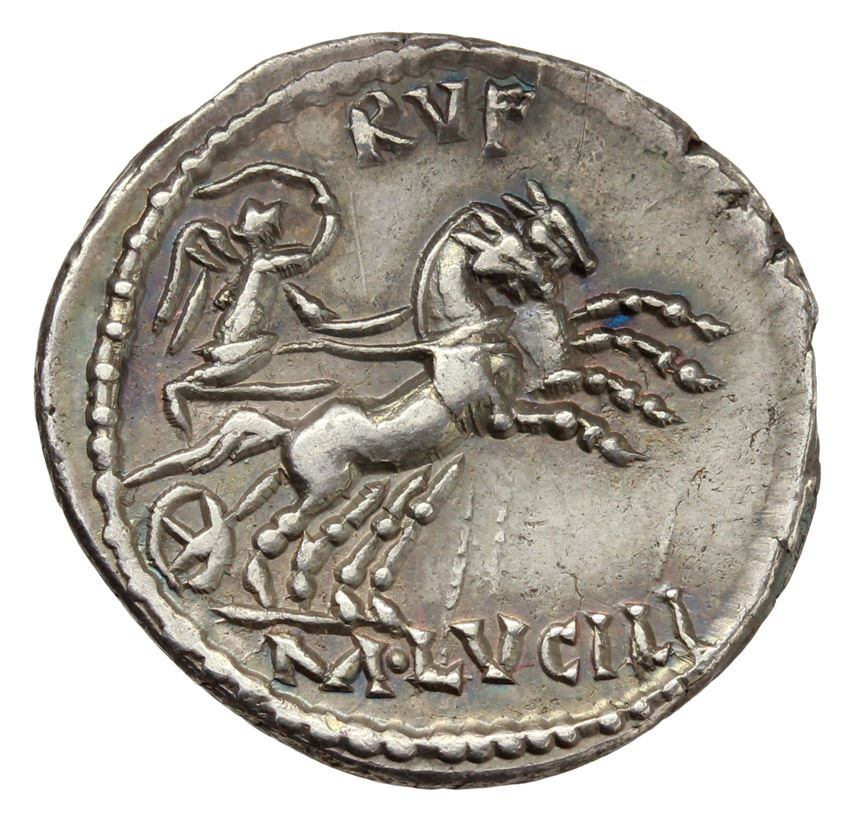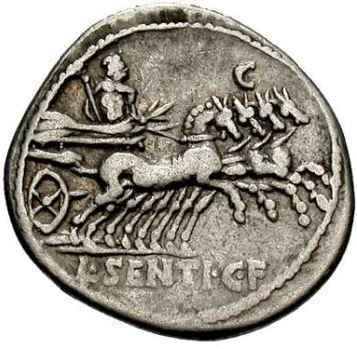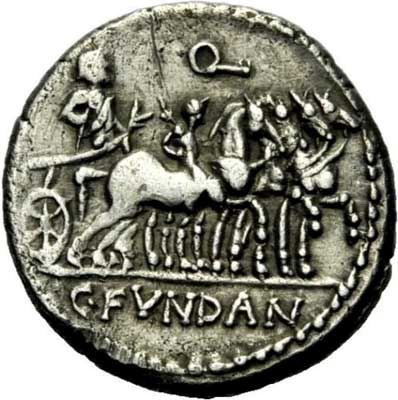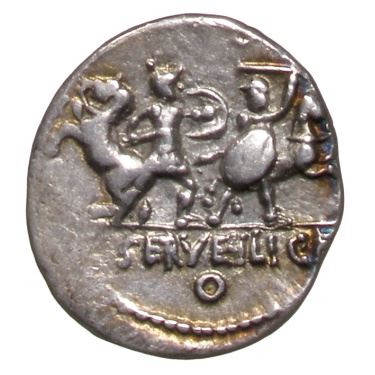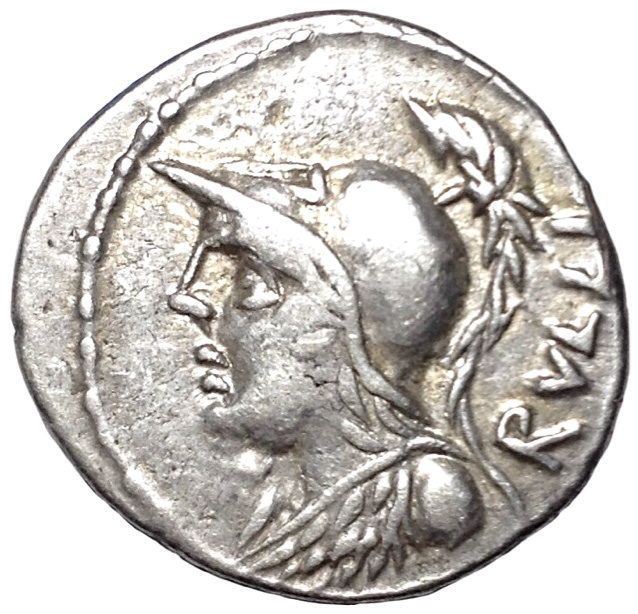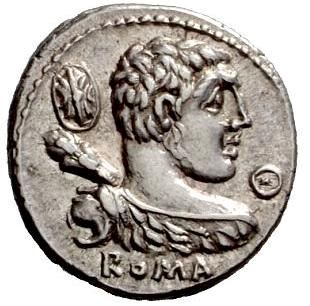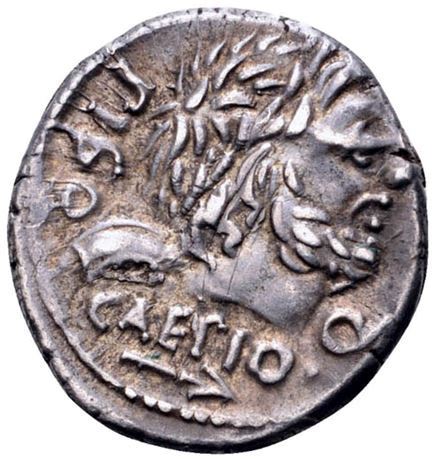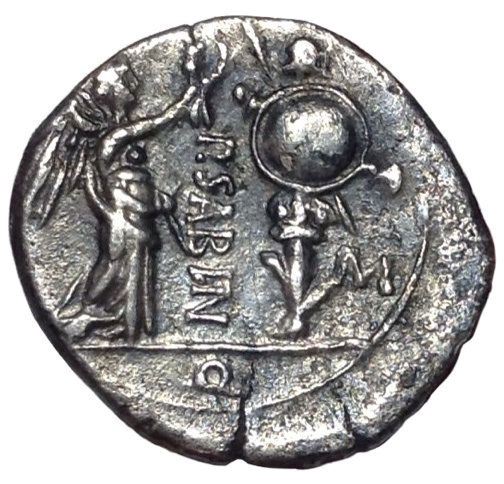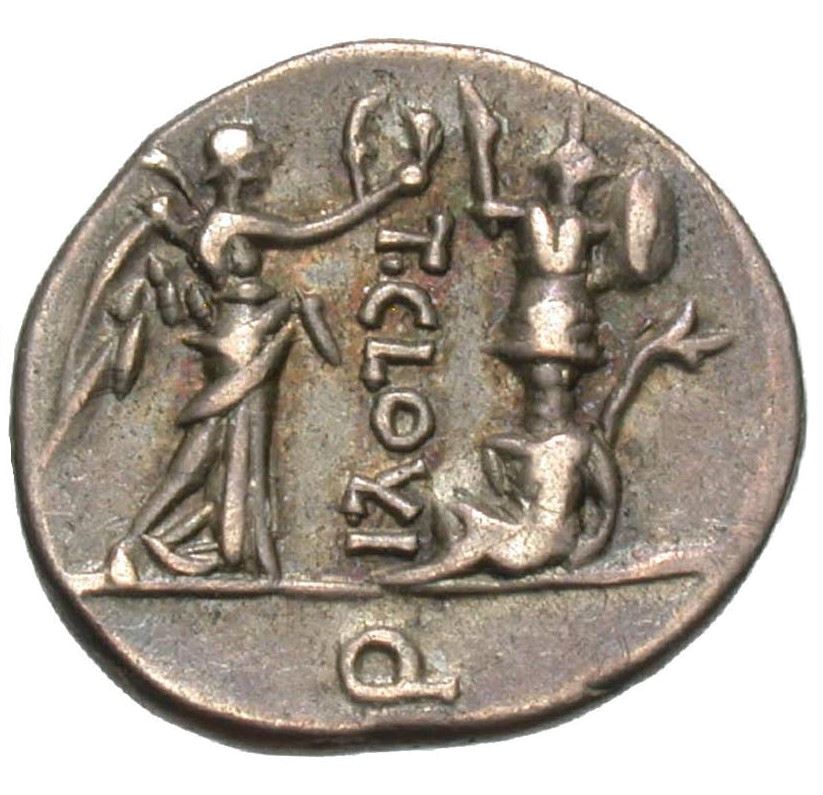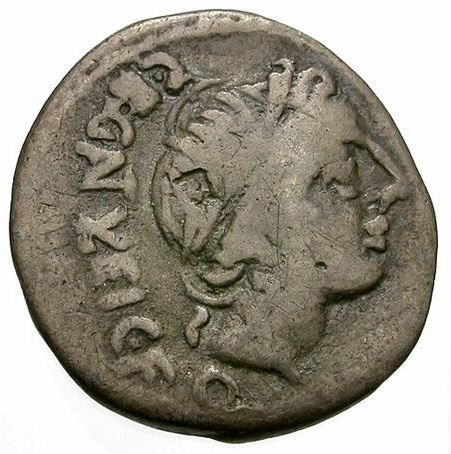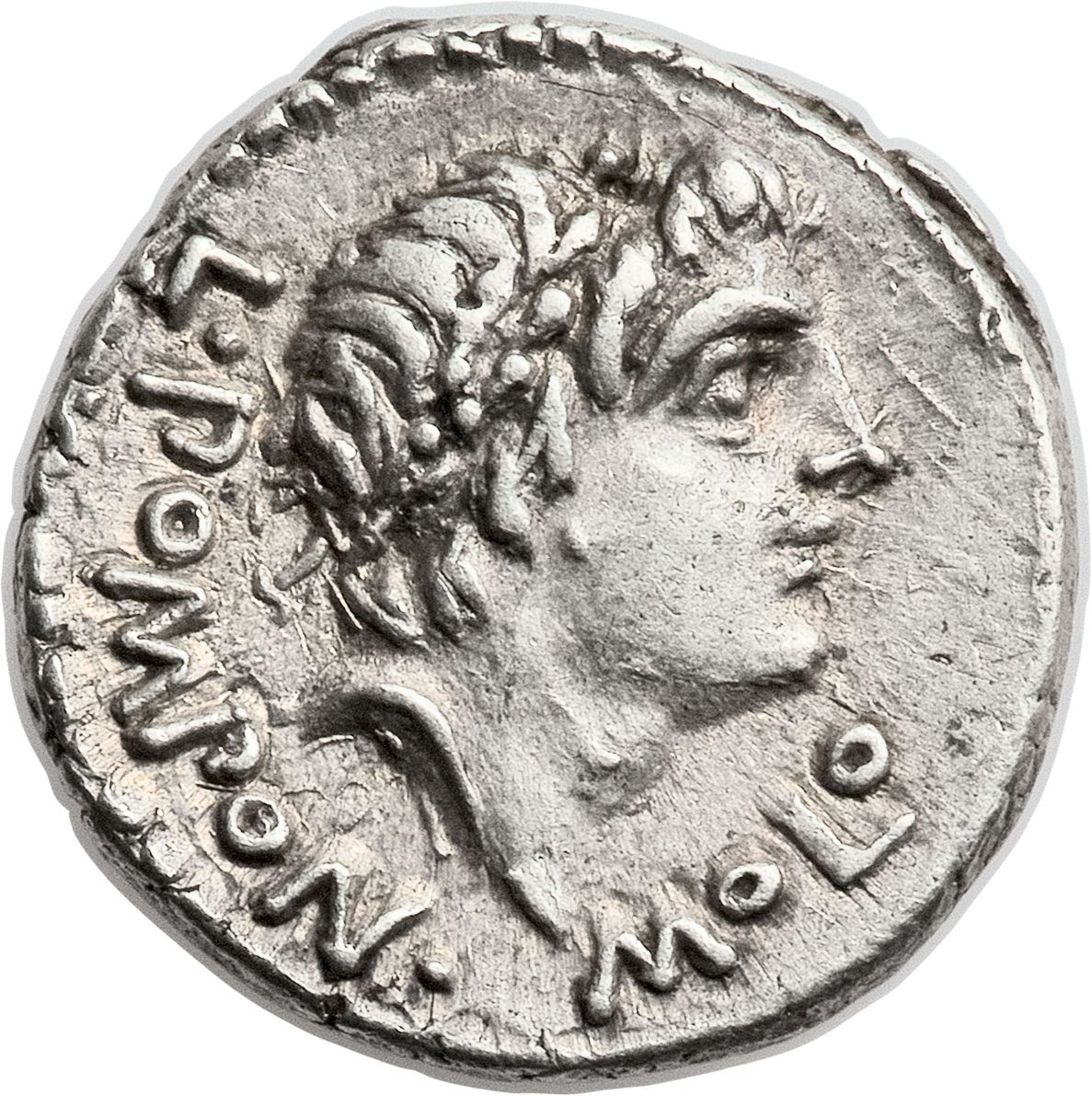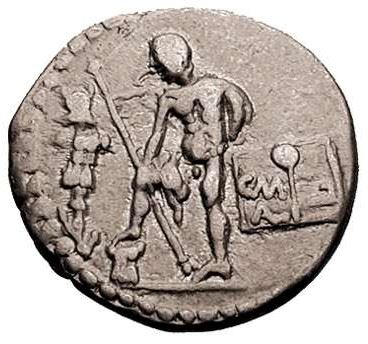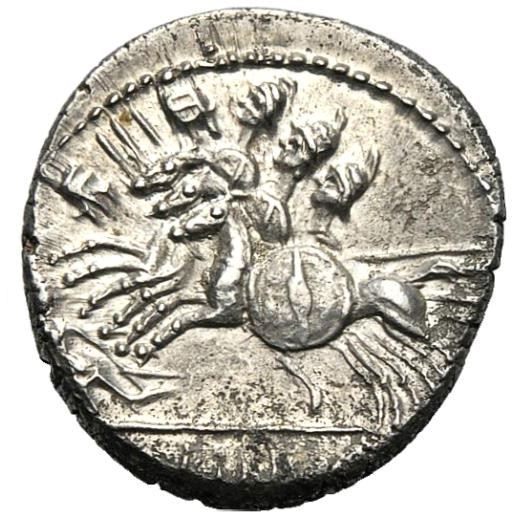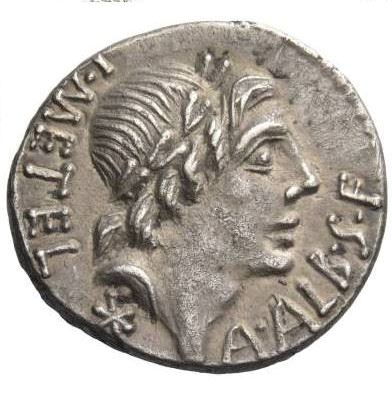In 106, the Roman general and statesman Gaius Marius was elected to his first consulate. This was the start of an era which he came to dominate - he held the consulship a record 7 times - and which would come to significantly influence Rome's transformation from Republic to Empire.
Marius was responsible for enacting a series of important reforms of the Roman Army, and as a general he defeated the invading Teutones, Ambrones and Cimbri.
In 91 BC Marcus Livius Drusus was elected Tribunis Plebis and revived the cause of the Gracchi brothers by proposing to extend Roman citizenship to all freemen of Italy. He was assassinated, and the Italian allies cities - the Socii - rebelled in what is known as the Social War.
Marius was responsible for enacting a series of important reforms of the Roman Army, and as a general he defeated the invading Teutones, Ambrones and Cimbri.
In 91 BC Marcus Livius Drusus was elected Tribunis Plebis and revived the cause of the Gracchi brothers by proposing to extend Roman citizenship to all freemen of Italy. He was assassinated, and the Italian allies cities - the Socii - rebelled in what is known as the Social War.
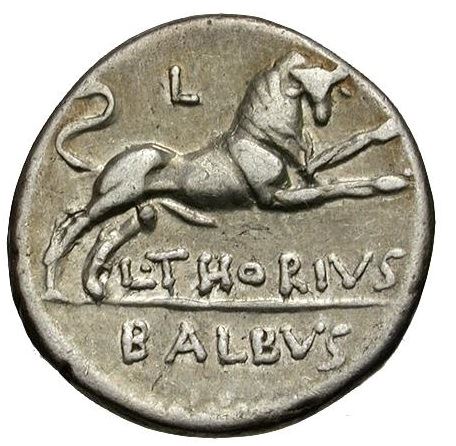
Lucius Cornelius Scipio Asiaticus was one of the moneyers for the year 106 BC. He was later consul in 83 BC.
He was a great-grandson of Lucius Cornelius Scipio Asiaticus, consul in 190 BC, who was victor of the Battle of Magnesia (189 BC).
This Scipio is first mentioned in 100 BC, when he took up arms with the other members of the senate against Lucius Appuleius Saturninus. ...
He was a great-grandson of Lucius Cornelius Scipio Asiaticus, consul in 190 BC, who was victor of the Battle of Magnesia (189 BC).
This Scipio is first mentioned in 100 BC, when he took up arms with the other members of the senate against Lucius Appuleius Saturninus. ...
C. Sulpicius C.f. Galba was one of the moneyers for the year 106 BC.
The gens Sulpicia was one of the most ancient patrician families at Rome, and produced a succession of distinguished men, from the foundation of the Republic to the imperial period. The first member of the gens who obtained the consulship was Servius Sulpicius Camerinus Cornutus, in 500 BC, only nine years after the ex...
The gens Sulpicia was one of the most ancient patrician families at Rome, and produced a succession of distinguished men, from the foundation of the Republic to the imperial period. The first member of the gens who obtained the consulship was Servius Sulpicius Camerinus Cornutus, in 500 BC, only nine years after the ex...
L. Memmius Galeria was one of the moneyers for the year 106 BC. He is not otherwise known.
Lucius Aurelius Cotta was one of the moneyers for the year 105 BC. He is not otherwise known.
Gens Aurelia was a plebeian family at Rome, which flourished from the third century BC to the latest period of the Empire. The first of the Aurelian gens to obtained the consulship was Gaius Aurelius Cotta in 252 BC. From then to the end of the Republic, the Aurelii supplied many distinguished ...
Gens Aurelia was a plebeian family at Rome, which flourished from the third century BC to the latest period of the Empire. The first of the Aurelian gens to obtained the consulship was Gaius Aurelius Cotta in 252 BC. From then to the end of the Republic, the Aurelii supplied many distinguished ...
L. Hostilius Tubulus was one of the moneyers for the year 105 BC. He is not otherwise known.
Gens Hostilia was an ancient family at Rome, which traced its origin to the time of Romulus. The most famous member of the gens was Tullus Hostilius, the third King of Rome; however, all of the Hostilii known from the time of the Republic were plebeians. Several of the Hostilii were distinguishe...
Gens Hostilia was an ancient family at Rome, which traced its origin to the time of Romulus. The most famous member of the gens was Tullus Hostilius, the third King of Rome; however, all of the Hostilii known from the time of the Republic were plebeians. Several of the Hostilii were distinguishe...
L Thorius Balbus was a moneyer who hailed from Lanuvium, where there was a cult of Juno Sospita. Cicero describes him as a man who lived in such a manner that there was no pleasure, no matter how rare, that he did not enjoy. He was possibly the son of M. Aclius Balbus (168 BC).
Gens Thoria was a Roman family which used as a badge the bull (taurus) due to the similarity between the words...
Gens Thoria was a Roman family which used as a badge the bull (taurus) due to the similarity between the words...
Lucius Appuleius Saturninus was a Roman populist and tribune. He struck coins as Quaestor in 104 BC. He is most notable for introducing a series of legislative reforms, alongside his associate Gaius Servilius Glaucia and with the consent of the famous Gaius Marius, during the last years of the second century BC.
In 100 BC, an Optimate candidate, Gaius Memmius, who seemed to have a good ...
In 100 BC, an Optimate candidate, Gaius Memmius, who seemed to have a good ...
Caius Coelius Caldus was one of the moneyers for the year 104 BC.
He was a consul in 94 BC alongside his colleague Lucius Domitius Ahenobarbus. During Sulla's second civil war he tried in conjunction with Gaius Carrinas and Brutus to help Gaius Marius the Younger by preventing Pompey from joining his forces to Sulla, but failed.
His grandson and namesake struck coins bearing ...
He was a consul in 94 BC alongside his colleague Lucius Domitius Ahenobarbus. During Sulla's second civil war he tried in conjunction with Gaius Carrinas and Brutus to help Gaius Marius the Younger by preventing Pompey from joining his forces to Sulla, but failed.
His grandson and namesake struck coins bearing ...
Q. Minucius M.f. Thermus was one of the moneyers for the year 103 BC. He probably had a long-standing alliance with Pompey.
Gens Minucia was a Roman family, which flourished from the earliest days of the Republic until imperial times. The gens was apparently of patrician origin, but was better known by its plebeian branches. The first of the Minucii to hold the consulship was Marcus Min...
Gens Minucia was a Roman family, which flourished from the earliest days of the Republic until imperial times. The gens was apparently of patrician origin, but was better known by its plebeian branches. The first of the Minucii to hold the consulship was Marcus Min...
Lucius Julius Caesar was one of the moneyers for the year 103 BC. He was elected consul in 90 BC. He was involved in the downfall of the plebeian tribune Lucius Appuleius Saturninus in 100 BC.
During his consulship, he defeated the Samnites, after suffering losses at Aesernia, Accerae, and Teanum. Lucius proposed legislation (one of the Leges Juliae or "Julian laws") granting Roman citi...
During his consulship, he defeated the Samnites, after suffering losses at Aesernia, Accerae, and Teanum. Lucius proposed legislation (one of the Leges Juliae or "Julian laws") granting Roman citi...
L. Cassius Caeicianus was one of the moneyers for the year 102 BC. He served as praetor in 84 BC.
Gens Cassia was a Roman family of great antiquity. The gens was originally patrician, but all of the members who appear in later times were plebeians. The first of the Cassii to obtain the consulship was Spurius Cassius Viscellinus, in 502 BC. He was the proposer of the first agrarian law, ...
Gens Cassia was a Roman family of great antiquity. The gens was originally patrician, but all of the members who appear in later times were plebeians. The first of the Cassii to obtain the consulship was Spurius Cassius Viscellinus, in 502 BC. He was the proposer of the first agrarian law, ...
Gaius Fabius Hadrianus was one of the moneyers for the year 102 BC. He was later was praetor in 84 BC and propraetor 83–82 in the Roman province of Africa.
He is known primarily for the sensational circumstances of his death: during an uprising at the beginning of Sulla's second civil war, the governor’s residence was set on fire and Hadrianus was burned alive.
Gens Fabia was...
He is known primarily for the sensational circumstances of his death: during an uprising at the beginning of Sulla's second civil war, the governor’s residence was set on fire and Hadrianus was burned alive.
Gens Fabia was...
L. Julius was one of the moneyers for the year 101 BC. He is often mistaken for his namesake the moneyer L. Iulius, who struck coins on 141 BC.
Gens Julia or Iulia was one of the most ancient patrician families at Ancient Rome. Members of the gens attained the highest dignities of the state in the earliest times of the Republic.
The first of the family to obtain the consulsh...
Gens Julia or Iulia was one of the most ancient patrician families at Ancient Rome. Members of the gens attained the highest dignities of the state in the earliest times of the Republic.
The first of the family to obtain the consulsh...
M. Lucilius Mn.f. M.n. Rufus was one of the moneyers for the year 101 BC. Hes is not otherwise known, but is perhaps the son of Mn. Lucilius M.f. who was senator in 129 BC.
Gens Lucilia was a plebeian family at ancient Rome. The most famous of the gens was the poet Gaius Lucilius, who flourished during the latter part of the second century BC.
Although many Lucilii appear i...
Gens Lucilia was a plebeian family at ancient Rome. The most famous of the gens was the poet Gaius Lucilius, who flourished during the latter part of the second century BC.
Although many Lucilii appear i...
L. Sentius C.f. was one of the moneyers for the year 101 BC. Hes is not otherwise known, but was also Quaestor, as the Q on his coins indicate.
Gens Sentia was a plebeian gens, which less and less as the Republic neared its end. Their cognomini seem to have been Augurinus and Saturninus.
Gens Sentia was a plebeian gens, which less and less as the Republic neared its end. Their cognomini seem to have been Augurinus and Saturninus.
C. Fundanius was one of the moneyers for the year 101 BC, as well as a Quaestor the same year - as indicated by the Q on his coins.
The gens Fundania was a plebeian family at Rome, which first came into notice in the middle of the third century BC. Although one of its members obtained the consulship in BC 243, the Fundanii never attained much importance in the state.
The Fund...
The gens Fundania was a plebeian family at Rome, which first came into notice in the middle of the third century BC. Although one of its members obtained the consulship in BC 243, the Fundanii never attained much importance in the state.
The Fund...
M. Servilius Vatia Isauricus was one of the moneyers for the year 100 BC. He was probably the brother of P. Servilius Vatia Isauricus, the consul for 79 BC.
Gens Servilia was a patrician family at Rome. The gens was celebrated during the early ages of the Republic, and the names of few gentes appear more frequently at this period in the consular Fasti. It continued to produce men of inf...
Gens Servilia was a patrician family at Rome. The gens was celebrated during the early ages of the Republic, and the names of few gentes appear more frequently at this period in the consular Fasti. It continued to produce men of inf...
P. Servilius M.f. Rullus was one of the moneyers for the year 100 BC. He was the father of the Tribunis Plebis for the year 63 BC, P. Servilius Rullus.
Gens Servilia was a patrician family at Rome. The gens was celebrated during the early ages of the Republic, and the names of few gentes appear more frequently at this period in the consular Fasti. It continued to produce men of influenc...
Gens Servilia was a patrician family at Rome. The gens was celebrated during the early ages of the Republic, and the names of few gentes appear more frequently at this period in the consular Fasti. It continued to produce men of influenc...
Publius Cornelius Lentulus Marcellinus was one of the moneyers for the year 100 BC. His namesake was moneyer in 50 BC.
The gens Cornelia was one of the greatest patrician houses at Rome. For more than seven hundred years, from the early decades of the Republic to the third century AD, the Cornelii produced more eminent statesmen and generals than any other gens. Nearly a third of all th...
The gens Cornelia was one of the greatest patrician houses at Rome. For more than seven hundred years, from the early decades of the Republic to the third century AD, the Cornelii produced more eminent statesmen and generals than any other gens. Nearly a third of all th...
L. Calpurnius Piso Caesoninus was one of the moneyers for the year 100 BC. He was Quaestor Ostiensis - in Ostia - in the same year.
Gens Calpurnia was a plebeian family at Rome, which first appears in history during the third century BC. The first of the gens to obtain the consulship was Gaius Calpurnius Piso in 180 BC, but from this time their consulships were very frequent, and the fa...
Gens Calpurnia was a plebeian family at Rome, which first appears in history during the third century BC. The first of the gens to obtain the consulship was Gaius Calpurnius Piso in 180 BC, but from this time their consulships were very frequent, and the fa...
Quintus Servilius Caepio the Younger struck coins in the year 100 BC, as part of this tenure as Quaestor Urabanus in the same year.
In 92 BC, Caepio prosecuted Marcus Aemilius Scaurus, the eminent princeps senatus, for supposed provincial extortion and, it seems, for taking bribes from Mithridates VI of Pontus. Scaurus managed to issue a counter-accusation against Caepio, and the two ac...
In 92 BC, Caepio prosecuted Marcus Aemilius Scaurus, the eminent princeps senatus, for supposed provincial extortion and, it seems, for taking bribes from Mithridates VI of Pontus. Scaurus managed to issue a counter-accusation against Caepio, and the two ac...
P. Sabinus was Quaestor in 99 BC. He struck coins in this capicity, but is not otherwise known.
Sabinus is an ancient Roman cognomen originally meaning "Sabine"; that is, it indicated origin among the Sabines, an ancient people of Latium. It was used by a branch of the gens Flavia, of the gens Calvisia, and several others, and is by far the most common of the cognomina indicating ethnic...
Sabinus is an ancient Roman cognomen originally meaning "Sabine"; that is, it indicated origin among the Sabines, an ancient people of Latium. It was used by a branch of the gens Flavia, of the gens Calvisia, and several others, and is by far the most common of the cognomina indicating ethnic...
T. Cloulius, supporter of Gaius Marius, struck coins as questor in 99 BC. He later served as Legatus in 83 BC. His presumed namesake struck coins in 128 BC.
This quinarius issue commemorates Marius' victory over Teutones in the battle of Aquae Sextiae 102 BC and over Cimbri one year later.
This quinarius issue commemorates Marius' victory over Teutones in the battle of Aquae Sextiae 102 BC and over Cimbri one year later.
C. Egnatuleius C.f. struck coins in 97 BC, in his role as quaestor.
Egnatuleia was a plebeian family at Rome. The only member of the gens to achieve any of the higher offices of the state was Lucius Egnatuleius, quaestor in 44 BC.
Egnatuleia was a plebeian family at Rome. The only member of the gens to achieve any of the higher offices of the state was Lucius Egnatuleius, quaestor in 44 BC.
L. Pomponius L.f. M.n. Molo struck coins in 97 BC. He is not otherwise known.
Gens Pomponia was a plebeian family at Rome. Its members appear throughout the history of the Roman Republic, and into imperial times. The first of the gens to achieve prominence was Marcus Pomponius, tribune of the plebs in 449 BC; the first who obtained the consulship was Manius Pomponius Matho in 233 BC. <...
Gens Pomponia was a plebeian family at Rome. Its members appear throughout the history of the Roman Republic, and into imperial times. The first of the gens to achieve prominence was Marcus Pomponius, tribune of the plebs in 449 BC; the first who obtained the consulship was Manius Pomponius Matho in 233 BC. <...
C. Publicius Malleolus was one of the moneyers for the year 96 BC. He was Quaestor in 80 BC, and is presumably the son of the C. Malleolus who was colonial moneyer in Narbo in 118 BC.
The cognomen 'Malleolus' means hammer, and was associated with Gens Publicia.
The cognomen 'Malleolus' means hammer, and was associated with Gens Publicia.
A. Postumius Albinus was one of the moneyers for the year 96 BC.
He was probably the son of Sp. Postumius Albinus, Consul in 110 BC, and was possibly killed in the Battle of the Colline Gate in 82 BC.
His coins are marked A·ALBINVS·S·F and he issued coins jointly with L. Caecilius Metellus and C. Publicius Malleolus.
He was probably the son of Sp. Postumius Albinus, Consul in 110 BC, and was possibly killed in the Battle of the Colline Gate in 82 BC.
His coins are marked A·ALBINVS·S·F and he issued coins jointly with L. Caecilius Metellus and C. Publicius Malleolus.
L. Caecilius L.f. Q.n. Metellus Delmaticus was one of the moneyers for the year 96 BC.
Caecilia was a plebeian family at Rome. Members of this gens are mentioned in history as early as the fifth century BC, but the first of the Caecilii who obtained the consulship was Lucius Caecilius Metellus Denter, in 284 BC.
From the consulship of Lucius Caecilius Metellus Denter, the fam...
Caecilia was a plebeian family at Rome. Members of this gens are mentioned in history as early as the fifth century BC, but the first of the Caecilii who obtained the consulship was Lucius Caecilius Metellus Denter, in 284 BC.
From the consulship of Lucius Caecilius Metellus Denter, the fam...

